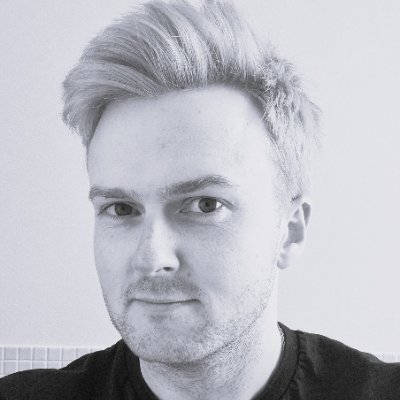frontiers fellowship – round 1
Ruairi Mackenzie
Nationality
British
Career-Level
Mid-Career
Host Institution
CIC Biogune
Spain
Residency Project
One field that I keep returning to in my coverage is disease pathology. I think often of the multiple sclerosis patients who donated blood cells for me to study during my time at Cambridge. As a writer for Technology Networks, I saw it as my duty to do right by them when reporting new research. I wrote regularly about neurodegeneration and rare disease, which is the focus of my application for the FRONTIERS program. I wrote a feature for Technology Networks about the rare disorder metachromatic leukodystrophy (MLD), which was featured by the ABSW. Interviewing clinicians, researchers, policymakers and disease-affected families, I put together a piece that highlighted how cutting edge tools –including CRISPR, which had first sparked my interest in biological science – could change the lives of people suffering from rare diseases.
At CIC Biogune, the institution I intend to collaborate with during the residency, a small group of intrepid researchers are exploring the molecular basis of rare disease. Much of this work, conducted in labs led by Óscar Millet and Raúl Pérez-Jiménez, focuses on the analysis of the genomic and proteomic changes that cause rare disease. Excitingly, Dr. Millet’s work has moved into the translational space, with his company Atlas Molecular Pharma pioneering a drug treatment for congenital erythropoietic porphyria.
My intention at the centre is to report on this rich vein of rare disease research, producing articles and news pieces about the centre’s work. I will split my time between Dr. Millet and Dr. Pérez-Jiménez’s labs. I have already spoken with both group leaders, who are happy to integrate me into their labs, taking part in meetings and speaking with their teams on a day-to-day basis. Dr. Millet has advised me that I would be able to talk with some of the porphyria patients and patient groups that he collaborates with. I have advised both leaders that I want to contribute to their labs in kind. I will hold drop-in workshops with lab members. Dr. Pérez-Jiménez explained to me that it is less common in Spain for researchers to have training in speaking with the media. Given how important their work is, I intend to organize workshops on media engagement, interview skills, and using social media. These are all skills which are invaluable for researchers.
I would also like to deliver a lecture on the same topic to the wider research body at the institute. I have organized workshops and lectures in previous roles, so feel confident I can deliver a useful resource for the CIC Biogune team.
I’m Ruairi Mackenzie, a freelance reporter based in Glasgow, Scotland. I have written about biology and the life sciences for the last seven years. I did so as a staff reporter for Technology Networks and for outlets like The Scientist, Science News Explores, and National Geographic.
My FRONTIERS residency will take place at CIC BioGUNE, a molecular sciences institute in Derio, Bizkaya, Spain. The centre uses powerful analysis techniques, like NMR spectroscopy and electron microscopy, to investigate the molecular basis of liver disease and cancer, among other conditions.
In my time at BioGUNE, I will focus my attention on the centre’s rare disease research.
In the last year, I’ve written extensively about rare diseases and the innovative molecular technologies that researchers have deployed to understand these conditions. This is a rich vein of reporting – there are angles to pursue from medical, ethical, and economic viewpoints – but at BioGUNE, I hope to cover the basic frontier research that is pushing research into these conditions forward. This was a project highlighted on the FRONTIERS website. I reached out to BioGUNE, and their contact, Jana Sendra, was instrumental in guiding me in the application process. She helped me set up additional meetings with some of the researchers I would be interviewing at the centre.
One group I want to highlight here is led by Dr. Oscar Millet, who is exploring the use of protein chaperones to treat the rare disease congenital erythropoietic porphyria. Dr. Millet leverages NMR at BioGUNE for this task.
I want to learn more about the techniques and experiments behind this area of research, and what motivates scientists who study these vanishingly uncommon conditions.
I want to use these learnings to improve my ability to write about rare disease. One of the key debates in the area is around disease screening. Some interventions for rare disease must be administered prior to symptom onset. Mass screening is required to make these interventions feasible. But health authorities still debate whether the biomarkers used to screen for these diseases are reliable. I believe interventions in frontier science can help improve how we detect and treat these conditions.
I hope that my residency will be filled with interesting conversation and debate with researchers at the institute. I also hope that I will have a chance to speak about my own background as a science journalist. I can’t wait to get started.
